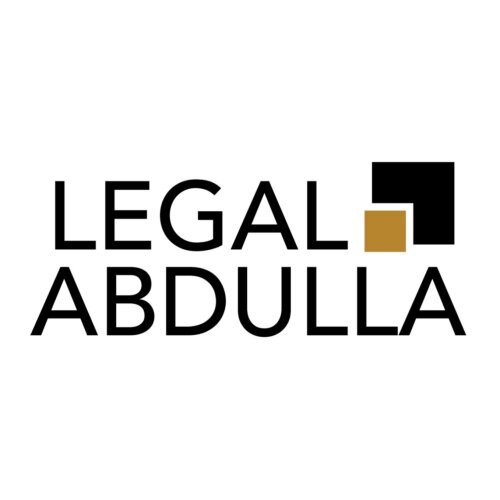Best Nonprofit & Charitable Organizations Lawyers in Doha
Share your needs with us, get contacted by law firms.
Free. Takes 2 min.
List of the best lawyers in Doha, Qatar
About Nonprofit & Charitable Organizations Law in Doha, Qatar
Nonprofit and charitable organizations in Doha, Qatar, operate under a framework that encourages philanthropic activities while ensuring compliance with local laws and regulations. These organizations are pivotal in supporting various social, cultural, and environmental causes. The legal landscape for nonprofits in Qatar is primarily governed by the Ministry of Administrative Development, Labor and Social Affairs (MADLSA), which provides guidelines for registration, operation, and management. Understanding the legal requirements and organizational frameworks is crucial for anyone looking to establish or run such entities effectively in Qatar.
Why You May Need a Lawyer
Running a nonprofit or charitable organization in Doha involves navigating a complex web of legal, financial, and administrative requirements. Situations where legal assistance might be necessary include:
- Ensuring compliance with local registration and licensing procedures.
- Drafting and reviewing organizational bylaws and governance documents.
- Negotiating and drafting agreements with donors, sponsors, or partners.
- Understanding tax obligations and exemptions.
- Handling disputes related to donations, volunteer agreements, or employment issues.
- Managing intellectual property concerns related to the organization's branding.
Local Laws Overview
Key aspects of local laws in Qatar concerning Nonprofit & Charitable Organizations include:
- Organizations must register with the Ministry of Administrative Development, Labor and Social Affairs for legal recognition.
- Strict guidelines exist for the solicitation and management of funds to ensure transparency and accountability.
- There are specific regulations governing foreign nonprofit participation and partnerships with local entities.
- Tax exemptions may be available but require adherence to detailed application procedures.
- Regular reporting and audits may be mandated to maintain good standing with regulatory bodies.
Frequently Asked Questions
How can I start a nonprofit organization in Doha, Qatar?
To start a nonprofit in Doha, you'll need to register with the Ministry of Administrative Development, Labor and Social Affairs, providing detailed information about your organization’s purpose, governance structure, and funding sources.
Are there any tax exemptions for nonprofits in Qatar?
Yes, certain tax exemptions are available for nonprofits, but they must comply with local regulations and apply for these exemptions through the appropriate governmental channels.
What are the compliance requirements for fundraising?
Fundraising activities must be conducted transparently and ethically, with funds managed according to the guidelines set forth by the regulatory bodies, including necessary permits for public fundraising.
Can foreign nonprofits operate in Doha?
Foreign nonprofits can operate in Doha, but they need to partner with local entities or go through specific channels of registration and compliance as required by Qatari law.
What reporting is required for a nonprofit in Qatar?
Nonprofits are generally required to provide annual reports detailing financial operations, narratives of activities undertaken, and compliance with their mission.
How do I handle donations and sponsorships legally?
Ensure that all donations and sponsorships are documented in writing, specifying the terms and conditions, and comply with financial reporting standards.
Can a nonprofit own property or engage in business activities?
Nonprofits can own property, but their involvement in business activities is typically limited and must directly relate to their charitable objectives.
What are the penalties for non-compliance with nonprofit regulations?
Penalties can include fines, suspension of activities, and in severe cases, dissolution of the organization, depending on the nature of the non-compliance.
Do nonprofit employees have the same labor rights as other workers?
Yes, employees of nonprofits are entitled to the same labor rights as employees in other sectors, including fair wages, safe working conditions, and employment contracts.
How can a nonprofit protect its intellectual property in Qatar?
Nonprofits should register their trademarks, logos, and other intellectual property with the relevant authorities to ensure legal protection.
Additional Resources
Here are some resources and bodies that can be helpful:
- Ministry of Administrative Development, Labor and Social Affairs (MADLSA): The primary regulatory body for nonprofits in Qatar.
- Qatar Charity: A key player in the nonprofit sector offering collaboration opportunities and insights.
- Qatar Financial Centre Authority: Provides guidance for nonprofits on financial matters and incentives.
Next Steps
If you need legal assistance regarding Nonprofit & Charitable Organizations in Doha, consider the following steps:
- Research and compile a list of local attorneys specializing in nonprofit law.
- Schedule consultations to discuss your specific needs and the lawyer's experience in this field.
- Gather all relevant documents and information to present your situation clearly to the lawyer.
- Evaluate legal advice in the context of compliance requirements and your organizational goals.
- Consider joining a local network of nonprofits to share resources and knowledge.
Lawzana helps you find the best lawyers and law firms in Doha through a curated and pre-screened list of qualified legal professionals. Our platform offers rankings and detailed profiles of attorneys and law firms, allowing you to compare based on practice areas, including Nonprofit & Charitable Organizations, experience, and client feedback.
Each profile includes a description of the firm's areas of practice, client reviews, team members and partners, year of establishment, spoken languages, office locations, contact information, social media presence, and any published articles or resources. Most firms on our platform speak English and are experienced in both local and international legal matters.
Get a quote from top-rated law firms in Doha, Qatar — quickly, securely, and without unnecessary hassle.
Disclaimer:
The information provided on this page is for general informational purposes only and does not constitute legal advice. While we strive to ensure the accuracy and relevance of the content, legal information may change over time, and interpretations of the law can vary. You should always consult with a qualified legal professional for advice specific to your situation.
We disclaim all liability for actions taken or not taken based on the content of this page. If you believe any information is incorrect or outdated, please contact us, and we will review and update it where appropriate.

















